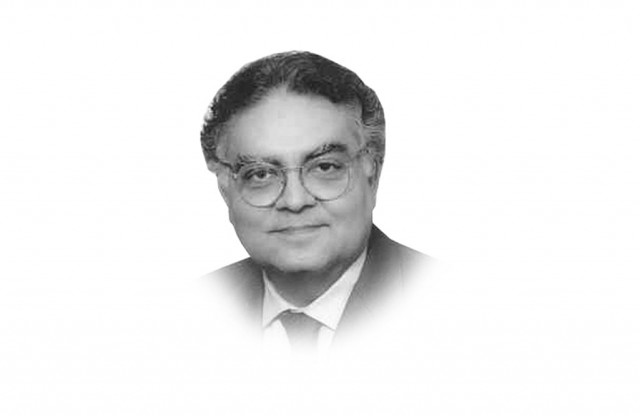Violence, institutions and the state
Violence occurs when the rules don't take account of organisations that specialise in it.

Violence, institutions and the state
How has violence been controlled in human history? Through the establishment of resilient institutions. Here, it may be helpful to define an institution. An institution is a set of formal rules and informal norms that together with their enforcement mechanisms structure human interaction. Now, for rules to be effective, enforcement mechanisms must function. At the same time, rules embody incentives and disincentives and so, if they are enforced, they shape the behaviour of individuals and organisations. Violence occurs either when the rules do not take account of organisations that specialise in violence and undermine order or when rules are not enforced. In such a case, it is a failure of the executive, along with its law-enforcement agencies, such as the police and military. In any case, if as in Pakistan at present, there are non-state organisations that have emerged as rival powers to that of the state within its geographic domain, then it is the state as a whole that gets undermined, not just its component organisations.
Max Weber defines the state in terms of its monopoly over the legitimate use of violence. Now the minimum function through which a state acquires legitimacy is the provision of security of life and property of citizens. In this sense, if there is widespread violence by non-state groups, who remain unchallenged, then the monopoly of the state over violence is lost and hence, the very legitimacy of the state gets eroded. This sets into motion a self-destruct process, where normally peaceful and law abiding citizens, having lost confidence in the state to establish order, begin to join one or the other militant group or, otherwise, take to lawlessness to protect their individual interests. When law is not enforced and cannot provide order, the law ceases to exist. Civil war can result at some stage in the continuing breakdown of order. Foreign powers seeking to protect their own interests then step in as the state unravels. This is what we observe in Sub-Saharan Africa, Libya, and more recently, Syria.
It is in this perspective that it is possible to understand the vociferous demand for establishing order in Karachi by the National Assembly members as well as the Senate last week. Armed militant groups driven by various ethnic, sectarian and gang identities are competing for power and resources by seeking to control parts of the city. The judiciary, too, had earlier called upon the government to fulfil its primary responsibility of providing protection of life and property to citizens in Karachi. But the problem is not limited to Karachi. Taliban groups are on the rampage in Fata and even settled areas such as Swat in Khyber-Pakhtunkhwa (K-P), Dera Ismail Khan in southern Punjab and areas bordering Afghanistan in Balochistan. Worse still, in some of the major cities in Punjab, Sindh, K-P and Balochistan, Taliban groups have pre-positioned themselves with arsenals of weapons and trained cadres. They have the capacity to launch simultaneous terrorist attacks aimed at paralysing the main urban centres of the country.
This is a defining moment for Pakistan. The vision of the founding fathers was of a pluralist, democratic polity nurtured by love, enlightenment and freedom; of a society enriched by the soaring creativity of its human potential. Can this experience of being, be brought to bear in confronting the forces of hate, bigotry and oppression; the forces of fear, which alienate us from the aesthetic and the spiritual? Can a consensus be achieved on who we are as a nation and can the state defend the nation?
Published in The Express Tribune, November 19th, 2012.















COMMENTS
Comments are moderated and generally will be posted if they are on-topic and not abusive.
For more information, please see our Comments FAQ